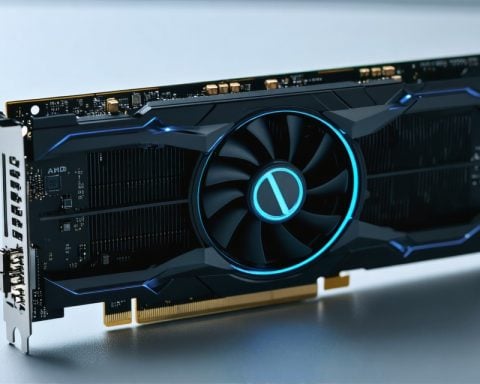In an unfolding drama in the tech world, Broadcom, a key player in the chip industry, faced market turbulence on Thursday. This reaction followed revelations that one of its major clients, Apple, might be strategizing to reduce reliance on Broadcom’s hardware components.
Apple’s Strategic Shift
Bloomberg reported early in the day that Apple plans to introduce its own chip for Bluetooth and WiFi functionalities in its popular devices like iPhones and iPads, potentially displacing components currently supplied by Broadcom. This new chip, internally dubbed “Proxima,” is set to hit the markets in 2025 and will be produced by Taiwan Semiconductor Manufacturing, the leading contract chipmaker globally.
Broadcom Impacted, But Not Down and Out
The possibility of Apple lowering its chip dependency on Broadcom could impact the latter’s revenue significantly, given that Apple accounts for about 20% of Broadcom’s total earnings. Despite this concerning development, Broadcom’s share price only dipped by a little over 1%, indicating that investors remain cautiously optimistic about Broadcom’s diverse partnerships elsewhere.
What This Means for Investors
The slight drop in Broadcom’s stock value contrasts with a milder S&P 500 decline, suggesting a limited immediate impact. Neither Apple nor Broadcom has officially commented on the reported shift, leaving some room for speculation. Broadcom’s investors are taking the news seriously, but there’s no rush to sell off shares just yet, indicating confidence in the company’s robust business model and other strategic alliances.
Will Apple’s New “Proxima” Chip Shift the Balance in the Tech Industry?
In a significant development, Apple’s strategic move to manufacture its own chips could reshape the technological landscape, spotlighting the intricate interplay between industry giants like Broadcom and Taiwan Semiconductor Manufacturing Company (TSMC).
Proxima: A Game-Changer for Apple and Beyond
Apple’s “Proxima” chip, which aims to integrate Bluetooth and WiFi functionalities, marks a pivotal shift from its reliance on third-party suppliers. By leveraging TSMC’s renowned manufacturing capabilities, Apple not only seeks to optimize component efficiencies but potentially alters its cost structures, impacting its overall device affordability and performance quality. This integration is a strategic progression that aligns with Apple’s tradition of vertical integration, aiming to augment control over its hardware ecosystem.
Implications for Broadcom and the Market at Large
While the proposed transition poses potential revenue implications for Broadcom, the company sustains a diverse portfolio that might buffer the expected financial setback. However, this scenario urges Broadcom and similar suppliers to evaluate their dependency on single customers and increase investment in innovation and diversification to fortify market resilience.
The Investor Perspective: Caution Amid Confidence
Despite the potential for substantial revenue loss, Broadcom’s stock experienced only a marginal dip, reflecting investor confidence in its broader market engagements. As the industry awaits official statements from both Apple and Broadcom, the overarching sentiment underscores a calculated wait-and-see approach among keen shareholders.
Broader Market Trends and Predictions
This unfolding narrative indicates broader market trends where companies are striving to minimize operational dependencies by developing proprietary technology. The tech market might witness an increase in competitive pressures, particularly within the semiconductor vertical. As companies like Apple innovate in hardware tech, it could eventually lead to new standards prompting technological evolutions across the sector.
For more insights into technological market trends, you might consider visiting Apple and Broadcom.










